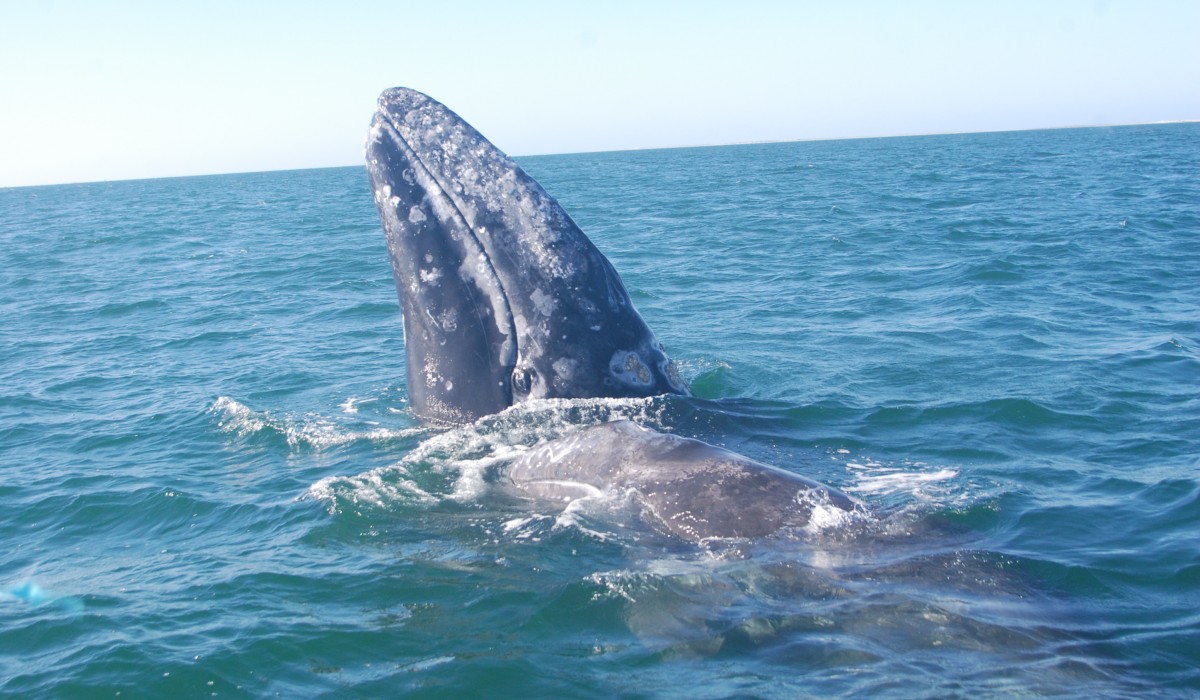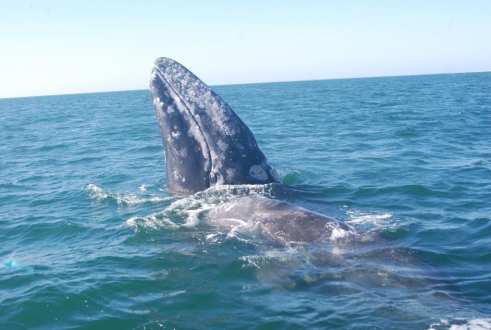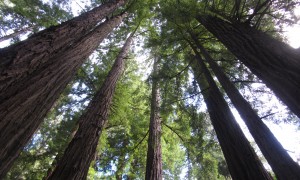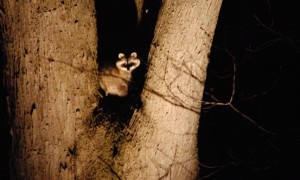by Kate Dernocoeur, Guest Blogger
She’s more than 30 feet long, and has surely come to this beautiful lagoon midway down the west coast of the Baja California peninsula for dozens of winters.
I am amazed how she seems simply to emerge, ghostlike at first, then as mottled slate-dark rising from below.
I reach into the water, seeking connection. To touch a whale! To be so close to such an immense mammal whose life is lived so differently. She lifts to the surface, a living submarine, noses into the ponga, our Mexican fishing boat, and places her forehead into my outstretched hand. I know I am being touched by grandeur and grace.
And so I touch back. At first I absorb the wet feel of her, the reluctant springiness of the well-insulated hide bolstered by up to 10 inches of blubber. I gain confidence and press my hand into the rubbery softness of the whale’s forehead.
 I think: she likes this. So I place both hands on the head and give her a measured but vigorous massage, and she stays and stays. Her head feels sort of like those foam mattresses, where the shape of a hand remains when it is taken away. But just “sort of,” because this is a gray whale, one of the largest of the baleen whales, and she’s right here, right now, unafraid.
I think: she likes this. So I place both hands on the head and give her a measured but vigorous massage, and she stays and stays. Her head feels sort of like those foam mattresses, where the shape of a hand remains when it is taken away. But just “sort of,” because this is a gray whale, one of the largest of the baleen whales, and she’s right here, right now, unafraid.
Maybe she should be. Not because of how any of our group would ever treat her, but I think how forgiving her species is, when you consider what’s been done to whales historically, what’s still happening in other places right now.
If a gray whale is just swimming, the backbone breaks the water’s surface like a giant series of knuckles.
There is no dorsal fin. It’s easy to understand why gray whales were often mistaken in olden times for sea monsters. When they exhale and the sun catches it right, it’s called “rainblow.” When they exhale and you’re hovering over the blowhole, it’s a very odd sort of whale-spit facial!
Gray whales live at least into their 60s, and some possibly much longer (when all goes well), if the evidence is true. Their migration is among the longest of any animal (8,000-10,000 average, and up to 14,000 miles) [see www.whalefacts.org]. They travel from the Bering and Chukchi Seas each fall to this place, to have their babies and make more. In March and April, they guide their young back to the north to feed and just…be.
The Mexican fishermen whose families have lived on this lagoon for generations understand these whales and their place here. The whole width of the midpoint of the Baja peninsula was given over to a bio-reserve some years ago, with rules about preservation of wildlife. Here in San Ignacio lagoon, where we are, the locals added their own rules. There is a well-defined whale-watching area, and only 16 boats can enter it at a time, for just 90 minutes. No more than two boats can hover around a particular whale at a time. The whales who don’t want to be visited have plenty of other areas to hang out. They do not feel harassed, not here. They visit us, they “spy-hop” (raise the head vertically out of the water), and even sometimes leap clear into the open air.
For three days, we head into the whale watching area two times a day, and are amply rewarded. In many cases, a whale brings her baby over to the ponga to visit us. Several times, I touch two gray whales at once. I lean out and kiss more than one.
I wish each of them godspeed and safe travels. My heart is filled with great respect, and awe.
 Kate escaped the brutal weather of the 2014 Midwest winter in March, and was joined on the whale-watching trip by travel buddies Kathy Humphrey and Margaret Idema. Many thanks to the guide and talented photographer, Ranulfo, for two “spy hop” photo and the picture of Kate kissing the whale.
Kate escaped the brutal weather of the 2014 Midwest winter in March, and was joined on the whale-watching trip by travel buddies Kathy Humphrey and Margaret Idema. Many thanks to the guide and talented photographer, Ranulfo, for two “spy hop” photo and the picture of Kate kissing the whale.


















Comments
5 CommentsBarbara Rohwer
Apr 21, 2014Kate,
What a fabulous once-in-a-lifetime experience! Love this post…
Kathy
Apr 22, 2014What a beautiful story–making friends with a whale, that will have to be added to my bucket list!
Ann Cabezas Creed
Apr 23, 2014We have great whale watching also in Costa Rica in the month of August. We go down to the Osa Peninsula (southern Pacific) to view these spectacular creatures.
Ann Cabezas Creed http://www.costaricalearn.com
Margaret
May 1, 2014Kate, thanks for your well chosen words to describe the whale watching experience we shared. Love living the memories of yet another adventure with you…and enjoyed having Kathy there with us.
e cigarettes reviews
Aug 4, 2014I appreciate, cause I found exactly what I used to
be looking for. You have ended my 4 day long hunt!
God Bless you man. Have a nice day. Bye